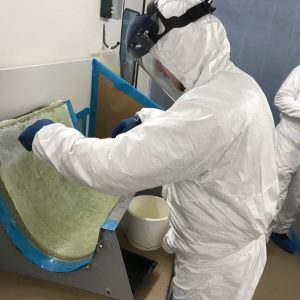As the world shifts towards sustainable and renewable energy sources, offshore wind farms have emerged as a prominent solution to harnessing the power of the wind and reducing our carbon footprint. These vast arrays of wind turbines, situated off the coastlines, hold the promise of clean and abundant energy. However, the operation and maintenance of offshore wind farms require specialized off shore training, knowledge and skills. This has given rise to the importance of offshore training, a vital component in ensuring the efficient and safe operation of these ambitious ventures.
Offshore Wind Farms: A Glimpse into the Future
Offshore wind farms represent a crucial step in the transition towards a cleaner energy future. By harnessing the powerful and consistent winds that sweep across oceans, these farms generate electricity without the greenhouse gas emissions associated with traditional fossil fuel sources. The energy produced is not only environmentally friendly but also abundant, making offshore wind farms a pivotal element in reducing our reliance on finite resources.
The Need for Specialized Training
Operating and maintaining offshore wind farms present unique challenges compared to their onshore counterparts. The harsh marine environment, challenging weather conditions, and remote locations demand a workforce that is well-trained and equipped to handle the complexities of these installations. Offshore wind farm training programs are designed to bridge the knowledge gap and prepare individuals for the intricacies of working in this dynamic field.
Key Elements of Offshore Wind Farm Training
Technical Expertise
Offshore wind farm training covers a range of technical aspects, from understanding the mechanics and engineering of wind turbines to troubleshooting and repair techniques. Participants learn how to monitor turbine performance, diagnose issues, and conduct routine maintenance.
Safety Protocols
Safety is paramount in any offshore endeavour. Training programs emphasize safety protocols specific to offshore environments, including evacuation procedures, working at heights, and handling emergencies at sea.
Navigation and Seamanship
Offshore wind farm technicians often travel to and from the installations by boat. As such, training may include navigation skills, vessel safety, and protocols for embarking and disembarking.
Survival Techniques
Surviving in the open sea requires specialized knowledge. Participants may learn essential survival skills, such as life raft deployment, first aid, and dealing with hypothermia.
Environmental Considerations
Offshore wind farms are developed with a focus on minimizing environmental impact. Training may include modules on marine ecology, bird and marine mammal protection, and waste disposal practices.
Communication and Teamwork
Effective communication and collaboration are essential in offshore wind farm operations. Training programs often emphasize teamwork, conflict resolution, and clear communication to ensure a harmonious work environment.
Regulatory Compliance
Offshore wind farms are subject to various regulations and standards. Training ensures that participants are well-versed in compliance requirements, permits, and legal aspects of offshore energy projects.
Advancing the Green Workforce
Offshore wind farm training not only prepares individuals for careers in a growing sector but also contributes to the development of a skilled and sustainable green workforce. As the demand for renewable energy sources continues to rise, the need for trained professionals who can operate and maintain offshore wind farms will only intensify.
A Sea Change in Energy Generation
Offshore wind farm training plays a pivotal role in driving the global transition to clean energy. By equipping individuals with the expertise and skills required to navigate the challenges of offshore wind farm operations, these training programs ensure the reliable and efficient generation of renewable energy. As offshore wind farms become an increasingly prominent feature on our horizons, well-trained professionals will be at the forefront of this green revolution, steering us toward a more sustainable and environmentally responsible future.

